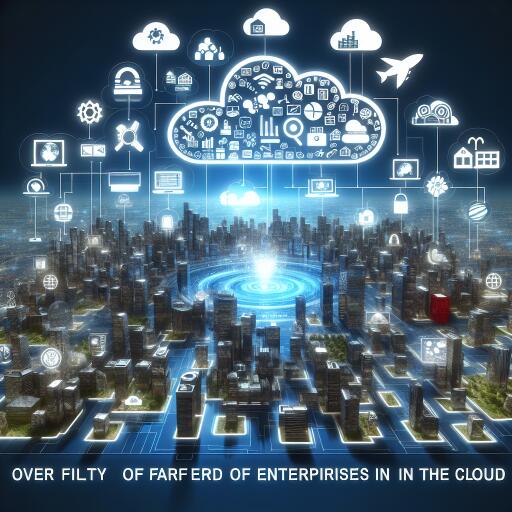Cloud Computing and AI: The Future of Enterprise and Supply Chain Management
The landscape of enterprise technology and supply chain management is swiftly evolving, with an increasing number of businesses migrating critical applications to the cloud. This transition, propelled by the aim to foster agility and resilience, is becoming more pronounced against the backdrop of global challenges such as geopolitical tensions, environmental concerns, and economic fluctuations.
Recent insights from a comprehensive study involving over 300 professionals from the labeling, packaging, and supply chain sectors across 55 countries indicate a significant shift towards digital transformation. These professionals hail from a diverse range of industries, highlighting the universal appeal and necessity of cloud computing, artificial intelligence (AI), and Internet of Things (IoT) solutions. The consensus is clear: leveraging advanced technologies is not merely a tactical move but a strategic imperative to spur business growth and enhance the flexibility of supply chain operations.
Digital transformation is now seen as a crucial response to ongoing supply chain disruptions and rising consumer demands. As the digital landscape evolves, the adoption of cloud services is skyrocketing, with projections suggesting a substantial increase in global public cloud service spending in the coming years.
Moreover, sustainability emerges as a significant theme in the discourse around digital transformation. A striking majority of surveyed organizations have already initiated sustainability programs, recognizing the dual impact of environmental responsibility and regulatory compliance on business practices.
The Other Side of Digitization: Escalating Cybersecurity Threats
However, the digital era brings its set of challenges, most notably, heightened cybersecurity risks. As enterprises store more data in the cloud, they become attractive targets for cybercriminals. The interconnected nature of modern supply chains exacerbates this threat, with a single breach having the potential to ripple across thousands of interconnected systems, many of which may belong to smaller, less protected businesses.
Statistics reveal that cyberattacks predominantly affect small and medium-sized businesses (SMBs), highlighting the urgent need for enhanced cybersecurity measures. Ransomware attacks, in particular, demonstrate the vulnerability of SMBs, underscoring the indispensable role of robust cybersecurity defenses in safeguarding the integrity of the supply chain.
This pressing concern has not gone unnoticed by supply chain officers. Anticipating the growing significance of cybersecurity, many are now considering it a critical factor in evaluating third-party transactions and partnerships. The goal is to mitigate risks and foster a secure digital supply chain environment, necessitating a comprehensive and proactive approach to cybersecurity.
Strengthening the Supply Chain through Cybersecurity
To effectively counter these risks, supply chain officers are being advised to overhaul their third-party risk assessment protocols. This involves setting clear cybersecurity standards, ensuring these standards are reflected in contractual agreements, and establishing rigorous audit programs to enforce compliance.
The evolution towards a more digitized supply chain, while offering numerous benefits, introduces new vulnerabilities that businesses must navigate. Small enterprises, in particular, must bolster their cybersecurity defenses to protect against potential threats. Through collaboration across the C-suite to develop a cohesive cybersecurity strategy, businesses can secure their supply chains against the multifaceted threats of the digital age.
In conclusion, as enterprises adapt to the changing technological and environmental landscapes, the integration of cloud computing, AI, and cybersecurity measures into supply chain management becomes increasingly vital. Embracing these advancements not only drives growth but also ensures resilience against the inevitable challenges of our digitized world.










